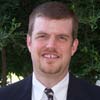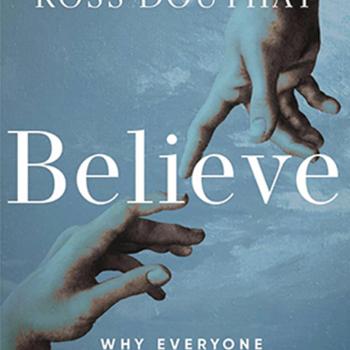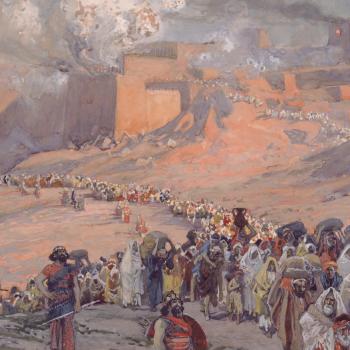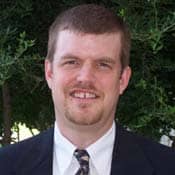 My wife and I sometimes talk about how to define "success" for our kids. Our culture is full of answers, few of them particularly satisfying. The most controversial recent prescription for parenting came from the self-described "Tiger Mother," Amy Chua, whose fearsome tactics, she says, will produce brilliantly accomplished prodigies.
My wife and I sometimes talk about how to define "success" for our kids. Our culture is full of answers, few of them particularly satisfying. The most controversial recent prescription for parenting came from the self-described "Tiger Mother," Amy Chua, whose fearsome tactics, she says, will produce brilliantly accomplished prodigies.
While some might balk at Chua's methods (threatening to leave children out in the snow if they don't obey, etc.), I suspect that many suburb-dwellers in America share her performance-based definition of success. Among Texans, we are told that children should be involved in organized sports from an early age, or else they will get "behind." They should be "socialized" into a "normal" childhood. They should get a job.
Okay, a job would be nice. For believing parents, however, there is more. Knowledge of God is at the top of the list. But introducing them to God falls under the broader category of childrearing. What should we teach our children, and just as important, how should we teach them? Worldly success alone often leads to a morally impoverished life.
Enter Anthony Esolen's remarkable Ten Ways to Destroy the Imagination of Your Child. If you are easily offended, don't read this book. But in Esolen you'll find better answers than in Chua. They share an emphasis on purposeful parenting, but their objectives are wholly different.
You don't see many works like Esolen's these days: it is satirical from first to last, in the style of Jonathan Swift. Esolen (an English professor at Providence College) takes on the persona of a cynical education bureaucrat, who insists that the purpose of teaching—indeed, childrearing itself—is to make a child into "solid, dependable, and inert space-filler in school and, later, a block of the great state pyramid."
Esolen's bureaucrat offers ten ways to smother the imaginative spirit of a child. They include demanding that adults organize all play time for children; obsessively monitoring them to ensure safety; abandoning old fairy tales and heroic biographies in favor of politically-correct pabulum; and above all, submerging our offspring in the mind-numbing flood of modern media. To Esolen, all these trends are bad for children, bad for the republic, and good for the stability of our ever-growing government, school apparatuses, and corporate behemoths.
This is not a feel-good book, and even the most sympathetic readers will cringe at certain points. But Esolen forces us to take a hard look at the absurd, noisy scenes through which our children daily parade: the school, the day care center, the fast food restaurant. Everywhere there is the visual chaos of our not-so-subtly Orwellian culture. We are bombarded with information and images that, in their never-relenting torrent, become meaningless. Even well-intentioned parents are complicit in perpetuating the inanity.
There was a time, of course, when American culture did not erode traditional values (at least not to the same pernicious extent) of community life, personal independence, common sense, and virtue. Many of our greatest leaders, such as George Washington, Benjamin Franklin, Abraham Lincoln, and Frederick Douglass, had little to no formal schooling, but were still raised in—or in the former slave Douglass's case, broke into—a world of literate imagination, a world that bred deep courage and convictions.
Patrick Henry was the epitome of the kind of imaginative man that Esolen's bureaucrat fears. Henry stopped attending his modest grammar school at ten, yet read deeply in the Bible, and in ancient and modern history, all under the tutelage of his father. He also learned to play the fiddle, and rambled in the countryside, hunting and discovering. (Chua would certainly not approve—he should have been practicing for a violin competition!) As a young man, Henry taught himself to pass the bar exam, and entered colonial politics ready for a showdown with Britain, the world's most formidable empire. "Liberty or Death" wasn't a slogan for Henry, it was a commitment born out of moral imagination. Hannah Montana and Twitter wouldn't have prepared him for that.
For Esolen, the most deplorable aspect of our inane culture is that it turns our minds and hearts from God. Relentless distraction—and I would add, a frenzied pursuit of worldly "success"—keeps us from hearing God's still small voice. But those who truly encounter God and his truth are "free to wonder, and free to love. They will be, if but now and then, shiningly human, the terrible creatures against whom no empire can stand," Esolen concludes. That sounds like a successful child to me.
1/26/2011 5:00:00 AM





